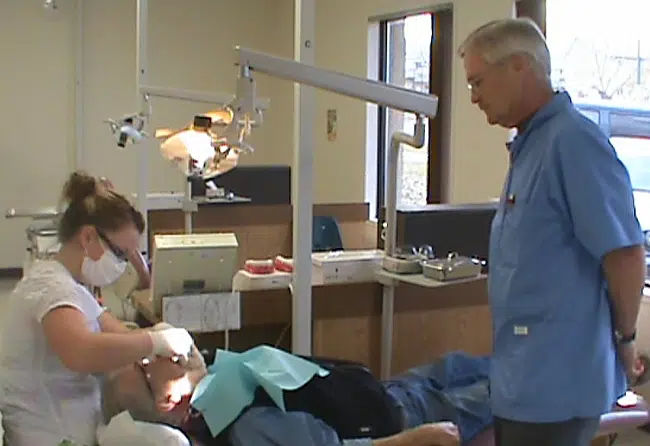
Unique Prince Albert Dental School fighting closure
Without funding a Prince Albert dental school, unique in Canada, could close.
The National School of Dental Therapy needs community support or it will have to shut its doors.
The school was founded in 1972 and has been in the city since the 1980s. Since its creation, the school has been the primary provider of dental therapists.
These graduates then go on to provide almost all care available to residents in isolated northern communities.
“There is no other school like this in Canada,” said instructor Dwight Krauss, who has been with the school since 1986.
The school was funded by Health Canada’s First Nations and Inuit Health Benefits unit. Two years ago however, it announced it would cease funding because legally, the provinces are responsible for funding education programs throughout the country.
At that time, the school was under the First Nations University of Canada and could not independently lobby for support or funding. Recent financial troubles at the university meant the school was free to attempt to preserve its own future.
With its hands united, the school is going to the community with petitions and has asked the city to officially support it.
That’s important because the province has said it is reluctant to fund the school if the community doesn’t back it.
Krauss said the school’s impact on the community is definitely worthy of support.
He said each year, the school graduates around 20 students who often stay within the province helping isolated communities, or go to the far-flung reaches of Canada to do the same.
More importantly however, the students provide free dental services as part of their curriculum. The impact, said Krauss, is huge.
“Presently, and this is a low year, we have 12 students in second year. They have 3000 patients that they are providing care for,” said Krauss.
“We have about 800 people on our waiting list and we see, and on average we’re seeing 80 people a month on an emergency basis.”
Krauss said the majority of their clients are those who can’t afford insurance or whose employment doesn’t provide coverage, such as seniors, students, young professionals or First Nations clients.
He added that people drive from literally every corner of the province to get service at the clinic.
Without the school, all those people will be out of luck trying to find care, said Krauss.
Meanwhile, out of fear, the school didn’t take first year students this semester, in case they had to close and let them down.
He wants the community to know the urgency of the situation, and he wants the message to be clear.
“If we don’t get funding, the doors will close,” he said.
adesouza@rawlco.com

